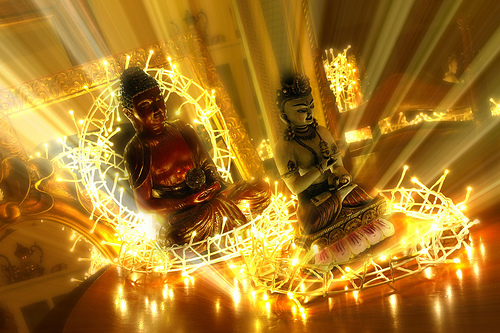
“Man stands in his own shadow and wonders why it’s dark.” -Zen Proverb
I’ve recognized that I come to my computer to write for one of two reasons:
Either I feel the need to explore something that’s relevant to my life, and in doing so, start a conversation about it; or there’s something bothering me that I haven’t fully addressed, and I’m hoping the conversation will make me feel better about it.
Last week an old friend wrote to congratulate me on my book. She started the email by joking that she wouldn’t “sell my secrets if the tabloids called.”
Though I doubt she was referring to anything specific, this struck a nerve with me because I’ve shared a lot of my personal experiences, but there are some stories I haven’t told.
Some of them I’ve worked through and simply don’t want to share; others I haven’t completely addressed, and I’m still working through them privately.
After I read her email, I started to write a post about the difference between authenticity and transparency. I realized three paragraphs in that my sole intention was to receive confirmation that I am not a fraud for keeping certain things to myself.
So I decided to sit with this, and give myself the reassurance and acceptance I hoped you’d give me.
I realized then that this same idea applies in everyday life, as we engage with other people and, consciously or unconsciously, look to them to give us what we’re not giving ourselves.
If we’re feeling down on ourselves, we may look to other people to validate us. If we’re feeling drained, we might look to other people to give us permission to take a break.
If they don’t give us what we need, we can end up feeling frustrated, and direct that at them. Ironically, even when people say what we think we want to hear, it tends to fall flat if we don’t truly believe they’re right.
What makes it all the more complicated is that we don’t often realize we’re doing this. It’s far more comfortable to search outside than it is to look within.
But if we want to fully feel the warmth of light, we need to first access our own. That starts with asking ourselves: What do I really need—and how can I give it to myself?
Photo by Wonderlane
About Lori Deschene
Lori Deschene is the founder of Tiny Buddha. She started the site after struggling with depression, bulimia, c-PTSD, and toxic shame so she could recycle her former pain into something useful and inspire others to do the same. You can find her books, including Tiny Buddha’s Gratitude Journal and Tiny Buddha’s Worry Journal, here and learn more about her eCourse, Recreate Your Life Story, if you’re ready to transform your life and become the person you want to be.
- Web |
- More Posts













 Though I run this site, it is not mine. It's ours. It's not about me. It's about us. Your stories and your wisdom are just as meaningful as mine.
Though I run this site, it is not mine. It's ours. It's not about me. It's about us. Your stories and your wisdom are just as meaningful as mine.
Beautiful post and I love that you addressed transparency & authenticity here, Lori. I think you shared a great deal but to me, it was entirely relevant to the book and to the topic so it felt fine and I loved it. Thanks so much for including me in your lovely book tour!
Thanks so much Farnoosh! I am so grateful you shared my book with your readers. =)
“If we’re feeling down on ourselves, we may look to other people to validate us.” You put this so well as always Lori, if I may say so you are probably one of the most authentic bloggers I read. And as my grandma taught me, life is an inside job. Any change of experience begins in us changing our thoughts and feelings. Thanks for saying this so clearly.
I love your grandmother’s wisdom! I value the opportunity to be open in my writing, and that generally means acknowledging I am human, just like everybody else, and I don’t have everything figured out. I read this post to a loved one last night, and they suggested I shouldn’t publish it because it might reflect poorly on me. I felt good about sharing it, though, and I use that as my barometer!
Beautiful Lori,
I have been enjoying your blog for awhile now, but not reached out. This entry was particularly poignant for me. I am currently finishing up with my second “case” of breast cancer and have faced some seriously ugly mother issues.. blogging all the while. I have not put everything into my blog for numerous reasons and have had to deal with the same thoughts. I am sending you prayers and positive energy… instead of my approval ;). Much Love, another Lori
Thank you so much Lori 2! I’m glad to hear you’re finishing up this case; I hope you’re doing well. I am sending you my prayers, positive energy, and love as well. =)
Very good post, Lori. You’re right you don’t have to share absolutely everything about yourself. I think you are very brave for being so open. I had never realized it, but it is also true we often look to others for things we’re not giving ourselves. I often look to my boyfriend for stability and calm because I don’t often feel those things. I think I will look more into finding those things than needing to call him.
I’m glad you found this helpful! I sometimes feel pretty vulnerable after hitting publish, but I love knowing that sharing these kinds of things helps other people who deal with the same things I do.
Simple wisdom. Hard won. *thumbs up*
Thank you Pam =)
Great post ! Wow @@ Elle Somer – ‘life is an inside job ‘ so powerful, thankyou 🙂
Thank you Elle!
Hi Lori,
Thank you for sharing this insight:)
Today I was noticing that there is strain on a relationship that is normally full of refreshment and ease. I turned it inward to see where that strain was: I hadn’t seen that I was “expecting” some sort of validation. I have that within. The strain is gone:)
As for authenticity and transparency, a client asked me this and my feeling is: you are authentic when what you share is genuine…transparency is the depth one is willing to share. We may be 100% authentic and 100% transparent, even if we share surface, or only certain levels of depth –as long as what we share is our truth at each level..
You’re welcome Joy! I’ve had that same experience in relationships before. I find that oftentimes when I’m feeling a sense of frustration in a relationship, what I really need to do is be good to myself.
I think that’s a great distinction between authenticity and transparency. This is something I’ve put a lot of thought into this year, because authenticity is so important to me–and yet I’ve been learning that this doesn’t mean we can’t choose to keep some things private.
thank you, I needed this today 🙂
You’re most welcome. =)
Truly love this … a dear (and wise) friend once told me; “See how long you can go without looking outside for what you want.” It’s proven to be a wonderfully expansive goal — namaste, my friend. <3
Yes, that’s a beautiful goal! I’ve been more in touch with that this year than ever. I definitely feel that urge to seek external validation at times–but when I can recognize it and wrap myself in my own love and acceptance, I feel not only peaceful and complete, but proud.
Thank you, Lori – you wrote this just for me, right?
As a caregiver for my husband, I often think and talk about how much I need a strong support system. It’s great to have helping hands but this made me realize how much I’m searching for that permission and validation – frantically sometimes.
I’ve been complaining of caregiver burnout. “What do I really need – and how can I give it to myself?”
Many hands make the work light – It takes a village … true enough but at the end of the day, I must do what I do for whatever reasons I have.
Authenticity is the word that keeps popping up for me lately – just be – just do – chop wood – carry water.
love, Grace
I’m glad this came at a good time for you Grace!
I used to work as a respite provider for individuals with developmental disabilities. I would pick them up and take them out for social activities, giving their family caregivers some much needed time to recharge.
I was always amazed by the strength and energy these people had, and I know they sometimes felt guilty for not being able to do more, or for taking time for themselves. I have so much respect and admiration for people who care for their ailing or elderly loved ones. I hope you have some time for you this weekend. Sending you much love! ~Lori
SNAP!
I’ve been working on a blog post on this same topic (looking to others and then getting annoyed when they don’t give you what you need)! Of course, I’m less practised at sitting with an idea for a while – I suppose that is partly why I do write.
I had a feeling this was something a lot of people could relate to!
I think this one will really help me and my people, thank you so much! 😀
You’re most welcome!